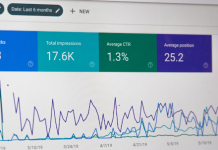In today’s fast-paced and tech-driven environment, many businesses have started thinking of developing mobile applications. Earlier, computers were experiencing high demand since their introduction. However, in recent times, consumers’ preferences have shifted towards mobile devices due to their portability. This has brought about exceptional growth in the mobile app development market. The global mobile app development market is expected to reach around $583.03 billion between 2022 and 2030, with a CAGR of 12.8%.
In the mobile app development industry, two operating systems, Android and iOS, dominate the whole market, with the most significant chunk of the overall share. And, choosing one is always dilemmatic for business owners worldwide. Therefore, in this blog post, we will assess Android vs iOS development on various parameters to help you understand which is the better choice for your next mobile app development project.
Table of Contents
Pros and Cons of Android vs iOS Development:
When we compare both operating systems in market share, Android is a clear, unrivaled leader, with 81% of the global market share in Q3 of 2023, followed by iOS with around 16% share. Several recent studies have shown that iOS phones are popular in countries with high per capita income. Android is more prevalent in developing countries with significantly low per capita income. Let’s Discuss some of the advantages and disadvantages of both Android and iOS platforms.
| iOS | Android | |
| Pros |
|
|
| Cons |
|
|
Android vs iOS Development: A Detailed Comparison
Business organizations strive to deliver the best for their end-users. While Android and iOS development have their own benefits, developing apps for multiple platforms separately can be time-consuming and expensive. Hence, the need to develop cross-platform application development comes to the rescue. Various frameworks and technological stacks offer the development of cross-platform applications. However, we prefer Flutter, which allows the development of high-performance and scalable applications in record time. If your goal is to deploy applications across multiple platforms, then Hire Flutter developer to assist you in creating applications that can seamlessly run on various platforms. Now, let’s compare how Android vs iOS development differs in various aspects.
Application Design
The Android and iOS development’s application design differs in terms of look and feel because of their guidelines. While designing Android applications, you will have to stick to the Material design, whereas for developing iOS applications, developers have to follow Human Interface Guidelines. The iOS prioritizes the app’s content more than the design, whereas the Android app’s designs are more inspired by the real world.
Security
Android vs iOS development differs significantly in terms of security parameters. The iOS is a closed ecosystem, and its strict App Store review process contributes to a secure environment that emphasizes user privacy and data protection. The robust security features of Apple, such as Face ID and secure enclave which will help enhance iOS app security. On the other hand, the Play Store of Android does not have strict review processes like the App Store. So, to secure Android applications, you have to integrate third-party solutions.
Programming Language
Developers utilize different programming languages to develop a mobile app for both platforms. One of the significant differences between Android vs iOS development is that for Android, the preferred and most common languages are Java and Kotlin. At the same time, iOS app development relies on Swift and Objective C.
App Testing
Android is an open-source ecosystem in which different manufacturers build devices with different screen sizes, resolutions, and layouts, making it difficult to test the performance of the applications. On the other side, iOS is a closed ecosystem, which means that all the devices share similar interfaces and have almost the same resolutions and layouts, which makes the work of the tester easier.
Publishing
The processes for publishing apps vary across iOS and Android app development. When the Android app developer submits their apps to the Play Store, the approval process is more accessible and allows quicker deployment of updates. Meanwhile, App Store guidelines are stringent, ensuring that only high-quality apps get published.
Conclusion
Choosing Android vs iOS development depends on various factors, such as your target audience, project requirements, and business goals. If your organization aims to satisfy a broader user base and device diversity, Android is your business’s go-to choice. However, if your target audience includes users with higher purchasing power and premium apps, then iOS will be a better choice. If you are still stuck and need help choosing which is better for your organization, then contact the Flutter app development company. They will help you develop mobile applications that you can deploy on multiple platforms with a single codebase within your budget and align with your business objectives.








